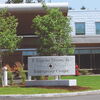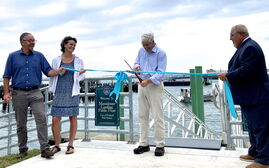Processing Your Payment
Please do not leave this page until complete. This can take a few moments.
- News
-
Editions
-
- Lists
-
Viewpoints
-
Our Events
-
Event Info
- Women's Leadership Forum 2025
- On the Road with Mainebiz in Bethel
- Health Care Forum 2025
- On The Road with Mainebiz in Greenville
- On The Road with Mainebiz in Waterville
- Small Business Forum 2025
- Outstanding Women in Business Reception 2025
- On The Road with Mainebiz in Bath
- 60 Ideas in 60 Minutes Portland 2025
- 40 Under 40 Awards Reception 2025
- On The Road with Mainebiz in Lewiston / Auburn
- 60 Ideas in 60 Minutes Bangor 2025
Award Honorees
- 2025 Business Leaders of the Year
- 2024 Women to Watch Honorees
- 2024 Business Leaders of the Year
- 2023 NextUp: 40 Under 40 Honorees
- 2023 Women to Watch Honorees
- 2023 Business Leaders of the Year
- 2022 NextUp: 40 Under 40 Honorees
- 2022 Women to Watch Honorees
- 2022 Business Leaders of the Year
-
-
Calendar
-
Biz Marketplace
- News
- Editions
- Lists
- Viewpoints
-
Our Events
Event Info
- View all Events
- Women's Leadership Forum 2025
- On the Road with Mainebiz in Bethel
- Health Care Forum 2025
- On The Road with Mainebiz in Greenville
- On The Road with Mainebiz in Waterville
- + More
Award Honorees
- 2025 Business Leaders of the Year
- 2024 Women to Watch Honorees
- 2024 Business Leaders of the Year
- 2023 NextUp: 40 Under 40 Honorees
- 2023 Women to Watch Honorees
- 2023 Business Leaders of the Year
- + More
- 2022 NextUp: 40 Under 40 Honorees
- 2022 Women to Watch Honorees
- 2022 Business Leaders of the Year
- Nomination Forms
- Calendar
- Biz Marketplace
$3.2M hybrid engine slated for new Casco Bay ferry
The Casco Bay Island Transit District will receive $3.2 million in federal funds to purchase a diesel electric hybrid propulsion system to power a new passenger ferry that’s now in the final design stage.
The system will allow the Casco Bay Lines ferry service to reduce its emissions of carbon dioxide by up to 800 metric tons annually, compared to a new vessel using conventional diesel technology. The new system will also reduce exhaust fumes, excessive engine noise and vibrations, the transit district said in a news release.
The funds will come through a competitive grant from the Federal Transit Administration’s Passenger Ferry Grant Program.
The transit district has been working for several years to update its aging fleet with a new vessel to serve Peaks Island.
“As we considered design options, it was abundantly clear to all stakeholders that a diesel-electric hybrid propulsion system offered significant advantages over a conventional system,” Hank Berg, the district’s general manager, said in the release.
The innovative technology could, perhaps, serve as a model for other transit applications, he added.
This will be one of the first public passenger ferry systems in the country to fully utilize the new hybrid technology.
Earlier this year, U.S. Sen. Susan Collins, R-Maine, chairwoman of the Transportation Appropriations Subcommittee, wrote a letter in support of Casco Bay Lines’ grant application.
“Casco Bay Lines is an essential transportation link for those who live and work in our island communities off the coast of Portland, providing passenger, freight and postal services, and transporting students to high school and people to their jobs,” Collins said in the release.
“This investment will help ensure that Casco Bay Lines continues to provide safe and reliable transportation to passengers, while also pioneering an environmentally friendly engine technology that will define the future of passenger vessel service.”
In 2018, the district entered into a contract with Elliott Bay Design Group, from Seattle, to design the vessel.
Typically, Casco Bay Lines passenger vessels have a useful life of 30 years, after which they become prohibitively expensive to maintain and operate. The Casco Bay Lines Transit Asset Management Plan identified that the Machigonne II, the only car ferry to Peaks, is beyond that span.
Based on demand and facility constraints, the Maine Public Utilities Commission currently allows for Casco Bay Lines to utilize a fleet of no more than five vessels, four for regular operations and one spare.
In 2019, the district’s board of directors approved a capacity for the new vessel of no greater than 599 passengers and 15 vehicles. The vessel will be 164 feet long by 40 feet wide by 12 feet deep. The size is constrained by existing space for berthing at the ferry service's terminal on the Maine State Pier in Portland.
With the help of the Federal Transit Administration, state of Maine, city of Portland and Portland Area Comprehensive Transportation System, the district secured the approximately $11.2 million in funds needed to design and construct the ferry; $6 million came from the Federal Transit Administration’s Passenger Ferry Grant Program.
The district competed with passenger ferries nationwide in 2017 to win the program’s competitive grant, receiving the highest award in the country. The remaining $5.2 million comes from a combination of other funds from the Federal Transit Administration, the Maine Department of Transportation and the city of Portland.
The diesel electric hybrid propulsion system is fairly new to the U.S. passenger ferry market, but not new to the U.S. shipbuilding market and has been in use on various commercial vessels. The district plans to source training specific to the system for its electrician.
The new vessel should be in operation by the end of 2022. Its name will be selected during the end of the construction phase. In the past, the district has included public input in the naming process.
Operating since 1981, the district provides year-round ferry service to six inhabited islands in Casco Bay. In a typical year, the district’s five ferries transport more than 1 million passengers, 30,000 vehicles and 5,300 tons of freight.













0 Comments